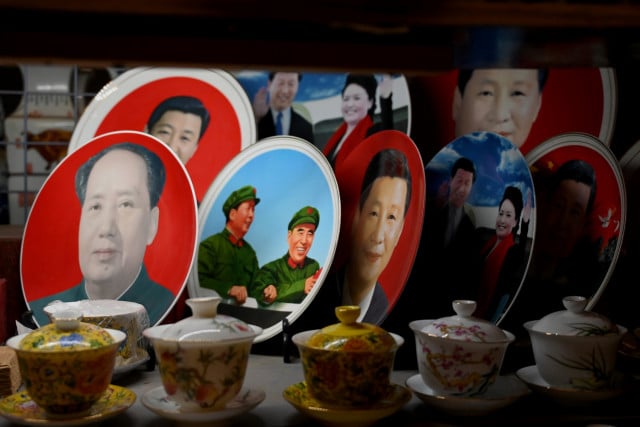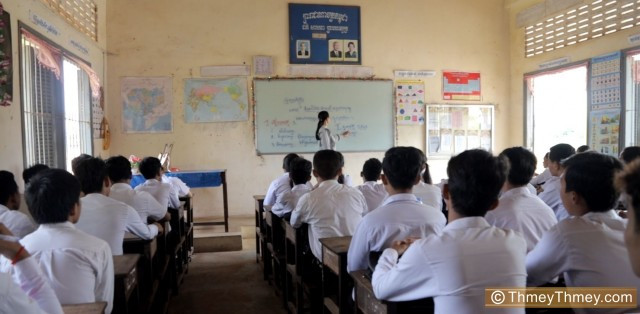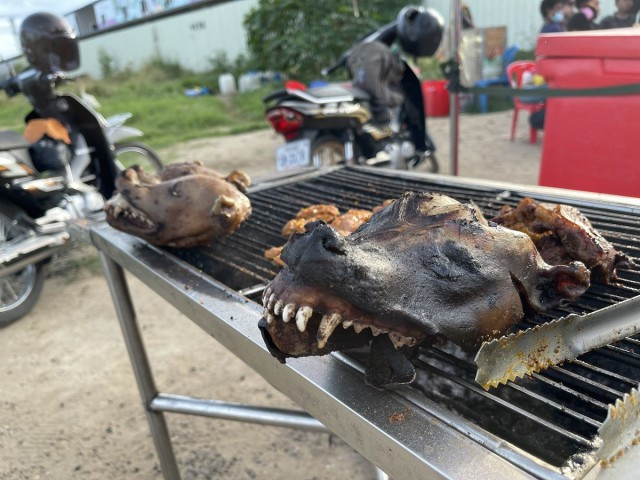China since the founding of the Communist Party

- By Agence France-Presse (AFP)
- October 14, 2022 1:58 PM
Bejing, China -- Here are the key dates in China since the founding of the Communist Party (CCP) which has grown into one of the world's most powerful political organisations:
- July 1921: Founded in secret -
In the summer of 1921, Mao Zedong and a clutch of Marxist-Leninist thinkers in Shanghai covertly establish the party and start to set up labour unions in China's cities.
The CCP in 1924 joins with the Nationalist Party, or Kuomintang (KMT), which three years later comes to power in mainland China.
But the KMT turns violently against the communists and ousts them from Shanghai. Mao and many of the CCP members move to the countryside, where they win peasant support.
- 1931: Japan invades -
In 1931, imperialist Japan invades Manchuria, before a full-scale invasion of mainland China in 1937 ahead of World War II which Japan eventually loses.
The CCP is bolstered by fighting the Japanese.
- 1945: Civil war -
One war ends but another rages. The communists and nationalists, led by Chiang Kai-shek, fight a full-scale civil war following World War II.
- 1949: Communist republic -
The communists defeat the nationalists in 1949, taking power in Beijing. The KMT flee to Taiwan, form their own government and cut off contacts with mainland China.
Party Chairman Mao proclaims the People's Republic of China on October 1, 1949.
-1956: '100 flowers' -
In the Hundred Flowers campaign of 1956-1957, Mao urges intellectuals to criticise the Communist Party, but later sends 500,000 of those who speak out to labour camps.
- 1958: Great Leap Forward -
Mao implements the Great Leap Forward to overhaul the agrarian economy through industrialisation and collective farming.
It results in a three-year famine, leaving up to 45 million people dead.
- 1959: Tibetan revolt
Beijing sends soldiers to crush a revolt against Chinese rule in Tibet, whose spiritual leader the Dalai Lama flees to India.
- 1964: Nuclear test -
China conducts its first nuclear weapons test.
- 1966: Cultural Revolution -
Mao launches the decade-long Great Proletarian Cultural Revolution ostensibly to purge capitalists and create social equality -- but also to remove his political rivals.
Armies of youthful Red Guards target anyone deemed to be part of the bourgeoisie, including intellectuals. Millions of people are persecuted, imprisoned or killed.
- 1971: UN recognition -
At the United Nations, Beijing takes China's seat which had previously been held by Taipei.
It becomes one of five countries to have a permanent seat at the UN Security Council.
- 1976: Gang of Four arrested -
Mao dies in September 1976 and the next month, the "Gang of Four" -- powerful party members who directed his Cultural Revolution -- are arrested. Among them is his wife.
Accused of being "anti-Party and anti-socialist", they are sentenced to long jail terms.
- 1978: Reform -
The party ratifies a "reform and opening up" policy led by supreme leader Deng Xiaoping. It moves the economy away from state control and lays the foundation for rapid growth.
- 1989: Tiananmen Square crackdown -
Troops open fire on students peacefully demonstrating for democracy in Beijing's Tiananmen Square.
The death toll is estimated at between several hundred and more than a thousand.
- 1997: Hong Kong returned -
Britain returns Hong Kong to China at the end of a 99-year lease, pledging that the global financial hub will maintain a high degree of autonomy for 50 years.
- 2001: Conquering space and trade -
China joins the World Trade Organization, and two years later sends its first human to space. In 2010, it overtakes Japan as the world's second-biggest economy after the United States.
- 2012: Xi takes over -
Hu Jintao steps down as CCP leader after a period of record economic growth, and greater openness driven by the internet. He is replaced by Xi Jinping.
- 2018: Authoritarian turn -
China's parliament abolishes a 10-year limit on presidential terms and Xi's name is added to the constitution, enhancing the authority of the country's most powerful leader since Mao.
- 2018: Uyghur camps -
A UN committee in 2018 says there are "credible" reports that China may be detaining upwards of one million Uyghurs and other Muslim minorities in camps.
Chinese authorities later describe the facilities as "vocational education centres" used to halt separatist sentiments and religious extremism.
In August 2022 a UN report cites possible crimes against humanity in the Xinjiang region.
- 2019: Covid emerges -
The world's first cases of Covid emerge in the central city of Wuhan. China responds with stringent lockdowns that virtually extinguish the coronavirus inside the country, giving rise to its zero-Covid strategy that remains in place to date.
- 2020: Hong Kong security law -
In 2020, China imposes a draconian national security law on Hong Kong in response to pro-democracy protests that erupted a year earlier.
A clampdown is overseen by then-security chief John Lee. In May 2022, he is appointed to govern the city in a selection process where he faced no rivals.
© Agence France-Presse















